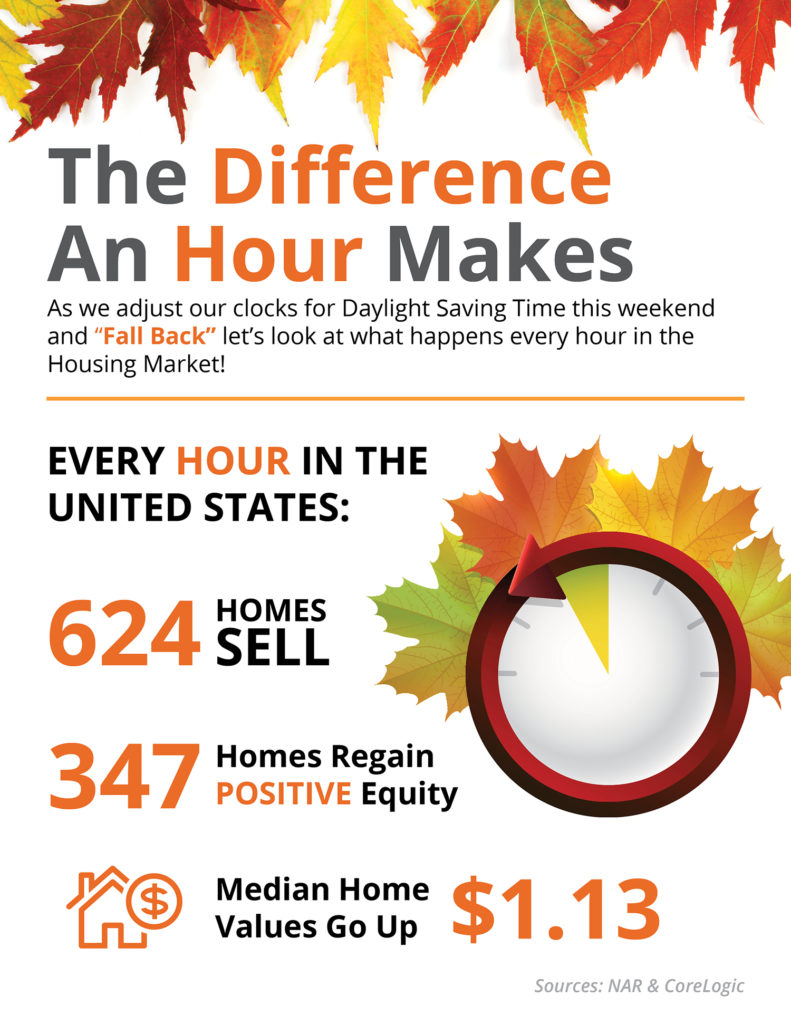Category: For Sellers
Multigenerational Households May Be the Answer to Price Increases
Nov
07
2017

Multigenerational homes are coming back in a big way! In the 1950s, about 21%, or 32.2 million Americans shared a roof with their grown children or parents. According to an article by Realtor.com, “Nearly 1 in 5 Americans is now living in a multigenerational household – a household with two or more adult generations, or grandparents living with grandchildren – a level that hasn’t been seen in the U.S. since 1950.”
Another report that proves this point is the National Association of Realtors’ (NAR) 2017 Profile of Home Buyers and Sellers which states that 13% of home buyers purchased multigenerational homes last year. The top 3 reasons for purchasing this type of home were:
- To take care of aging parents (22%, up from 19% last year)
- Cost savings (17%)
- Children over the age of 18 moving back home (16%, up from 14% last year)
Valerie Sheets, Spokesperson for Lennar, points out that,
“Everyone is looking for the perfect home for any number of family situations, such as families who opt to take care of aging parents or grandparents at home, or millennials looking to live with their parents while they attend school or save for a down payment.”
For a long time, nuclear families (a couple and their dependent children) became the accepted norm, but John Graham, co-author of “Together Again: A Creative Guide to Successful Multigenerational Living,” says, “We’re getting back to the way human beings have always lived in – extended families.”
This shift can be attributed to several social changes over the decades. Growing racial and ethnic diversity in the U.S. population helps explain some of the rise in multigenerational living; “Data suggest that multigenerational living is more prevalent among Asian (28%), Hispanic (25%), and African-American (25%) families, while U.S. whites have fewer multigenerational homes (15%).”
Additionally, women are a bit more likely to live in multigenerational conditions than are their male counterparts (12% vs. 10%, respectively). Last but not least, basic economics.
Valerie Sheets brings to light the fact that home prices have been skyrocketing in recent years. She says that, “As home prices increase, more families tend to opt for living together.”
Bottom Line
Multigenerational households are making a comeback. While it is a shift from the more common nuclear home, these households might be the answer that many families are looking for as home prices continue to rise in response to a lack of housing inventory.
Posted in For Buyers, For Sellers, Move-Up Buyers, Pricing
Low Inventory Causes Home Prices to Maintain Fast Growth
Nov
06
2017

The National Association of Realtors (NAR) released their latest Quarterly Metro Home Price Report last week. The report revealed that severely lacking inventory across the country drained sales growth and kept home prices rising at a steady clip in nearly all metro areas. Home prices rose 5.3% over the last quarter across all metros.
Lawrence Yun, Chief Economist at NAR, discussed the impact of low inventory on buyers in the report:
“Unfortunately, the pace of new listings were unable to replace what was quickly sold. Home shoppers had little to choose from, and many had to outbid others in order to close on a home. The end result was a slowdown in sales from earlier in the year, steadfast price growth and weakening affordability conditions.”
What this means to sellers
Rising prices are a homeowner’s best friend. As reported by the Washington Post in a recent article post:
“The rise in median sales prices has made current homeowners much more willing to sell their home, and that willingness is one of the main drivers behind the inventory that does make it on to the market. While it hasn’t been enough to meet demand, it has made the situation much better, compared with even three or four years ago.”
What this means to buyers
In a market where prices are rising, buyers should take into account the cost of waiting. Obviously, they will pay more for the same house later this year or next year. However, as Construction Dive reported, the amount of cash needed to purchase that home will also increase.
“These factors have created a situation where the market keeps moving the goalposts in terms of the down payment necessary for first-time homebuyers to get into a home.”
Bottom Line
If you’re thinking of selling and moving down, waiting might make sense. If you are a first-time buyer or a seller thinking of moving up, waiting probably doesn’t make sense.
Posted in First Time Home Buyers, For Buyers, For Sellers, Move-Up Buyers, Pricing
The Difference an Hour Makes in Real Estate [INFOGRAPHIC]
Nov
03
2017

Every Hour in the US Housing Market:
- 624 Homes Sell
- 347 Homes Regain Positive Equity
- Median Home Values Go Up $1.13
Posted in For Buyers, For Sellers, Infographics
Why Sell Now Instead of Later? The Buyers are Out Now
Nov
02
2017

Each year, most homeowners wait until the spring to sell their houses because they believe that they can get a better deal during the normal spring buyer’s market. However, recently released data suggests that a seller’s best deal may be available right now. The concept of ‘supply & demand’ reveals that the best price for an item will be realized when the supply of that item is low and the demand for that item is high. Let’s see how this applies to the current residential real estate market.
SUPPLY
It is no secret that the supply of homes for sale has been far below the number needed for over a year. A normal market requires six months of housing inventory to meet the demand. The latest report from the National Association of Realtors (NAR) revealed that there is currently only a 4.2-month supply.
Supply is currently very low!!
DEMAND
A report that was just released tells us that demand is very strong. The most recent Foot Traffic Report (which sheds light on the number of buyers out looking at homes) disclosed that there are more buyers right now than at any other time in the last twelve months. This includes more buyers looking at homes right now than at any time during last year’s spring market.
Demand is currently very high!!
Bottom Line
Waiting until the spring to list your house for sale made sense in the past. This year is different. The best deal is probably available right now.
Posted in For Sellers, Housing Market Updates, Move-Up Buyers
How to Save on a Mortgage Payment Whether Buying or Selling
Oct
26
2017

In Trulia’s recent report, Rent vs. Buy: Roommate Edition, they examined the impact that renting with a roommate has in determining whether it is more expensive to rent or buy. The study explains:
“Since we started keeping track in 2012, it’s been a better deal to buy than rent in America’s largest housing markets – and for much of that time it hasn’t been close.”
It then goes on to ask the question:
“But does the equation change for renters who share their rent with a roommate?”
The report reveals:
“While the standard rent vs. buy analysis reveals buying is cheaper than renting in all of the nation’s 100 largest metros, this doesn’t hold true for those choosing between renting with a roommate and buying a starter home.”
It seems obvious that sharing the cost of renting your living space by taking in a roommate dramatically decreases your housing expense (which is exactly what the report concluded), but it got us thinking.
What if you purchased a home and took in that same roommate?
The savings you would gain by adding a roommate would also occur if you purchased a home. This presents an opportunity for a list of possible purchasers. Here are two examples:
- The first-time buyer: As the report explains, many young adults already live with a roommate. If they purchased a new home, perhaps that roommate (or someone else) would be willing to rent a room in their new house. The rent could help offset the mortgage payment.
- The empty-nester seller looking to move: Their home may no longer fit their current lifestyle. They may now be looking for something a little smaller with all the bedrooms on the ground level. These families may be able to open a bedroom to an older family member (parents, aunts & uncles, etc.). This would kill two birds with one stone.
A smaller, move-down home is almost impossible to find in the current housing market. If the seller-turned-buyer takes on a tenant, they could buy a more expensive home knowing that the additional monies needed to pay the mortgage would be offset with the additional monies they receive in rent. Secondly, the older couple (ex. parents) could get a housing option that probably far surpasses anything else available to them in the current market.
Bottom Line
Considering the concept of renting a portion of your house to be able to purchase the perfect home may make sense to many families. You will need to decide if it is right for you.
Posted in First Time Home Buyers, For Buyers, For Sellers, Move-Up Buyers, Rent vs. Buy
The #1 Reason to List Your House, NOW!
Oct
25
2017

The National Association of Realtors (NAR) released the results of their latest Existing Home Sales Report which revealed that sales rose 0.7% month-over-month, but remain 1.5% lower than they were a year ago. Some may look at these numbers and think that now is not a good time to sell their house, but in fact, the opposite is true.
The national slowdown in sales is directly tied to a lack of inventory available for the buyers who are out in the market looking for their dream homes! The inventory of homes for sale has fallen year-over-year for the last 28 months and has had an upward impact on home prices.
NAR’s Chief Economist Lawrence Yun had this to say,
“Home sales in recent months remain at their lowest level of the year and are unable to break through, despite considerable buyer interest in most parts of the country.
Realtors® this fall continue to say the primary impediments stifling sales growth are the same as they have been all year: not enough listings – especially at the lower end of the market – and fast-rising prices that are straining the budgets of prospective buyers.” (emphasis added)
The houses that are on the market are selling fast, too! According to NAR’s Realtors Confidence Index, the median number of days it took for a house to go from listed to under contract over the past three months was 34.
Bottom Line
If you are one of the many homeowners who is debating listing your house for sale this year, the time is now! Let’s get together to discuss the specifics of our market!
Posted in For Buyers, For Sellers, Move-Up Buyers, Pricing
5 Reasons to Hire a Real Estate Professional When Buying or Selling!
Oct
23
2017

Whether you are buying or selling a home, it can be quite an adventurous journey. This is why you need an experienced real estate professional to guide you on the path to your ultimate goal. In this world of instant gratification and internet searches, many sellers think that they can For Sale by Owner or FSBO.
The 5 reasons you NEED a real estate professional in your corner haven’t changed, but have rather been strengthened by the projections of higher mortgage interest rates & home prices as the market continues to pick up steam.
1. What do you do with all this paperwork?
Each state has different regulations regarding the contracts required for a successful sale, and these regulations are constantly changing. A true real estate professional is an expert in his or her market and can guide you through the stacks of paperwork necessary to make your dream a reality.
2. Ok, so you found your dream house, now what?
There are over 180 possible steps that need to take place during every successful real estate transaction. Don’t you want someone who has been there before, someone who knows what these actions are, to make sure that you achieve your dream?
3. Are you a good negotiator?
So maybe you’re not convinced that you need an agent to sell your home. After looking at the list of parties that you will need to be prepared to negotiate with, you’ll soon realize the value in selecting a real estate professional. From the buyer (who wants the best deal possible), to the home inspection companies, to the appraiser, there are at least 11 different people who you will need to be knowledgeable of, and answer to, during the process.
4. What is the home you’re buying/selling really worth?
It is important for your home to be priced correctly from the start to attract the right buyers and shorten the amount of time that it’s on the market. You need someone who is not emotionally connected to your home to give you the truth as to your home’s value. According to a study by Collateral Analytics, FSBOs achieve prices significantly lower than those from similar properties sold by real estate agents:
“FSBOs tend to sell for lower prices than comparable home sales, and in many cases below the average differential represented by the prevailing commission rate.”
Get the most out of your transaction by hiring a professional.
5. Do you know what’s really going on in the market?
There is so much information out there on the news and on the internet about home sales, prices, and mortgage rates; how do you know what’s going on specifically in your area? Who do you turn to in order to competitively and correctly price your home at the beginning of the selling process? How do you know what to offer on your dream home without paying too much, or offending the seller with a lowball offer?
Dave Ramsey, the financial guru, advises:
“When getting help with money, whether it’s insurance, real estate or investments, you should always look for someone with the heart of a teacher, not the heart of a salesman.”
Hiring an agent who has his or her finger on the pulse of the market will make your buying or selling experience an educated one. You need someone who is going to tell you the truth, not just what they think you want to hear.
Bottom Line
You wouldn’t replace the engine in your car without a trusted mechanic. Why would you make one of the most important financial decisions of your life without hiring a real estate professional?
Posted in First Time Home Buyers, For Buyers, For Sellers, FSBOs, Move-Up Buyers
Hiring an Agent to Sell Your House May Cost You NOTHING!
Oct
19
2017

There is no doubt that it is easier to sell your house when using the services of a local real estate professional. The agent will provide:
- Greater exposure to more buyers
- The skills of a professional negotiator
- A layer of protection from possible legal liabilities
- Professional guidance in navigating any pitfalls that may arise
- A level of safety while showing the home
There is no doubt that these services are valuable to any family that decides to sell. The only question is – how valuable? One of the main reasons For Sale By Owners (FSBOs) don’t use a real estate agent is because they believe these services are not worth the fee an agent charges. But, what if those services didn’t cost the seller a penny?
A study by Collateral Analytics, however, reveals that FSBOs don’t actually save anything and, in some cases, may be costing themselves more by not listing with an agent.
In the study, they analyzed home sales in a variety of markets in 2016 and the first half of 2017. The data showed that:
“FSBOs tend to sell for lower prices than comparable home sales, and in many cases below the average differential represented by the prevailing commission rate.” (emphasis added)
Why would FSBOs net less money on their own than if they used an agent?
The study makes several suggestions:
- “There could be systematic bias on the buyer side as well. FSBO sales might attract more strategic buyers than MLS sales, particularly buyers who rationalize lower-priced bids on with the logic that the seller is “saving” a traditional commission. Such buyers might specifically search for and target sellers who are not getting representational assistance from agents.” In other words, ‘bargain lookers’ might shop FSBOs more often.
- “Experienced agents are experts at ‘staging’ homes for sale” which could bring more money for the home.
- “Properties listed with a broker that is a member of the local MLS will be listed online with all other participating broker websites, marketing the home to a much larger buyer population. And those MLS properties generally offer compensation to agents who represent buyers, incentivizing them to show and sell the property and again potentially enlarging the buyer pool.” If more buyers see a home, the greater the chances are that there could be a bidding war for the property.
Three conclusions from the study:
- FSBOs achieve prices significantly lower than those from similar properties sold by Realtors using the MLS.
- The differential in selling prices for FSBOs when compared to MLS sales of similar properties is about 5.5%.
- The sales in 2017 suggest the average price was near 6% lower for FSBO sales of similar properties.
Bottom Line
If you are thinking of selling, FSBOing may end up costing you money instead of saving you money.
Posted in For Sellers, FSBOs, Move-Up Buyers, Selling Myths
Moving-Up to a Luxury Home? Now’s the Time!
Oct
18
2017

If your house no longer fits your needs and you are planning on buying a luxury home, now is a great time to do so! We recently shared data from Trulia’s Market Mismatch Study which showed that in today’s premium home market, buyers are in control.
The inventory of homes for sale in the luxury market far exceeds those searching to purchase these properties in many areas of the country. This means that homes are often staying on the market longer which can eventually lead to a price change.
Those who have a starter or trade-up home to sell will find buyers competing, and often entering bidding wars, to be able to call your house their new home.
The sale of your starter or trade-up house will aid in coming up with a larger down payment for your new luxury home. Even a 5% down payment on a million-dollar home is $50,000.
But not all who are buying luxury properties have a home to sell first.
In a Washington Post article, Daryl Judy, an associate broker with Washington Fine Properties, gave some insight into what many millennials are choosing to do:
“Some high-earning millennials save money until they are in their early 30s to buy a place and just skip over that starter-home phase. They’ll stay in an apartment until they can afford to pay for the place they want.”
Bottom Line
The best time to sell anything is when demand is high and supply is low. If you are currently in a starter or trade-up house that no longer fits your needs and you are looking to step into a luxury home, now’s the time to list your house for sale and make your dreams come true.
Posted in For Sellers, Luxury Market, Millennials, Move-Up Buyers
Thinking of Selling? You Should Do It TODAY!!
Oct
16
2017

That headline might be a little aggressive; however, as August 2017’s housing market data begins to roll in, we can definitely say one thing: If you are considering selling, IT IS TIME TO LIST YOUR HOME TODAY!
In a recent article by CBS News, they explained that the number of existing home sales is shrinking, and Lawrence Yun, Chief Economist for the National Association of Realtors, said:
“There should be 3 million homes on the market right now…Yet, there are only 1.9 million.”
And this situation will be affected greatly by recent natural disasters. Yun continued by saying:
“Before the hurricanes I would have predicted 1.35 million in new-home construction in 2018…I’ll have to scale that down now.”
NAR, in their August 2017 Realtors® Confidence Index, indicated that:
“Amid sustained job creation and sustained historically low mortgage rates, REALTORS® reported…that buyer demand is stronger compared to conditions one year ago… and that fifty percent of properties were on the market for less than one month when sold.”
The only challenge to today’s market is a severe lack of inventory. A balanced market would have a full six-month supply of homes for sale. Currently, there is only a 4.2-month supply of inventory, which is down from 4.5 months one year ago.
Bottom Line
With demand increasing and supply dropping, this may be the perfect time to get the best price for your home. Let’s get together and discuss the inventory levels in your neighborhood to determine your next steps.
Posted in For Sellers, Housing Market Updates, Move-Up Buyers

